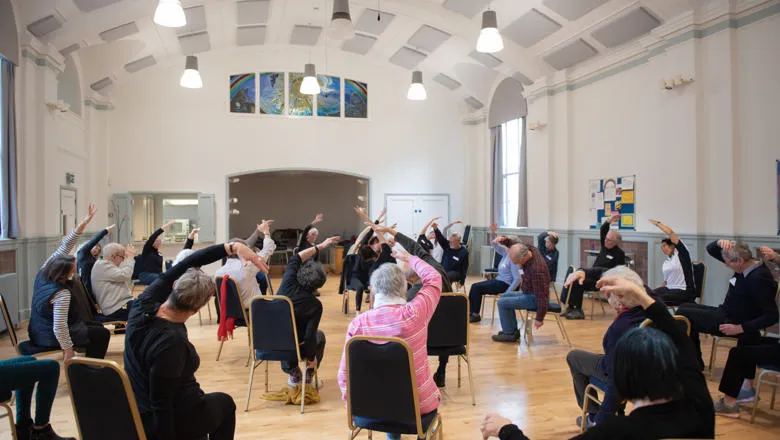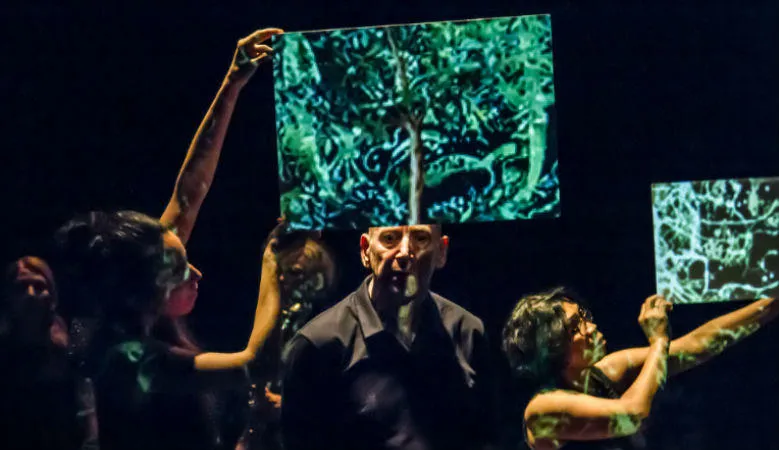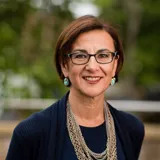“As a scientist, I feel a new energy and passion in working with artists, it is just an amazing experience. We invite interested artists and art organisations to contact us in order to establish new exciting collaborations in the field of arts and health, be these scientific studies or creative adventures.”
Professor Carmine Pariante, SHAPER co-lead and Professor of Biological Psychiatry at the Institute of Psychiatry, Psychology & Neuroscience (IoPPN), King’s College London
24 March 2021
Developing and researching arts in health interventions at King's
This seminar introduced the SHAPER programme at King's College London and invited collaboration from researchers

Following on from the first symposium in December 2020 entitled From feeling to knowing – putting imagination and lived experience at the heart of understanding illness, the second symposium held on 17 March 2021 introduced the SHAPER programme to a wider King’s audience. It set out the university’s intention to build its reputation as a major contributor in the arts, health and wellbeing arena and inviting collaboration for future arts and health programmes from interested academics and those working with the arts from a multitude of disciplines.
The seminar was chaired by Professor Carmine Pariante, SHAPER co-lead and Professor of Biological Psychiatry at the Institute of Psychiatry, Psychology & Neuroscience (IoPPN), King’s College London.
The panel included key SHAPER contributors from within the arts, clinical health, education and research sectors, among them:
- Dr Rachel Davis – Senior Research Fellow at NIHR’s CLAHRC South London’s Centre for Implementation Science at King’s College London
- Professor Ray Chaudhuri – Professor of Movement Disorders and Neurology at King’s College London
- Fleur Derbyshire-Fox – Director of Engagement at English National Ballet
- Paola Dazzan – Professor of Neurobiology of Psychosis, IoPPN Vice Dean (International) at King’s College London
- Hannah Dye – Head of Programmes at Breathe Arts Health Research
- Lucinda Jarrett – Artistic Director Rosetta Life & Stroke Odysseys
The seminar focused in particular on the impact of COVID-19 on the SHAPER programme and how Dance for Parkinson’s, Stroke Odysseys and Melodies for Mums were adapted in terms of research methodology and delivery. The talks were accompanied by screenings of film and video footage for each intervention to illustrate the work in both face-to-face and digital platforms.
The panel presentations from each of the three programmes covered both practice and research, including an introduction to the implementation science central to SHAPER through looking at how the three arts and health interventions can be upscaled and embedded in clinical pathways.
Key themes for the discussion on practice included:
- the power of the arts to motivate people who have given up hope of recovery
- combatting loneliness through encouraging greater social interaction
- building new skills
- enabling self-expression and improving overall quality of life.
Artists emphasised the importance of working towards performance and sharing work that has been created in the workshops. The research discussion covered the different methodologies for each programme. From Randomised Controlled Trials to Participatory Action Research, the presentations outlined some of the scientific evidence already in place for these programmes and the future challenges of implementation into health and healthcare services.
Panel presentations were followed by a Q&A session with representatives from across King’s faculties and King’s Health Partners; the Greater London Authority; Arts Council England; regional and national arts, health and wellbeing agencies; other higher education institutions and NHS professionals.

The discussion covered the challenges and opportunities of face-to-face and online engagement with participants who are often socially isolated and for whom there are multiple barriers to accessing the arts. It comprised questions about how the field of arts and health is marketing itself to raise awareness of the impact of the arts in health and was an opportunity for members of the audience to offer assistance in forging connections with practitioners and networks locally, regionally and nationally.
The seminar concluded with a call from Professor Carmine Pariante to collaborate with SHAPER and future programmes.
Further SHAPER seminars will be held once data for the programmes has been collected and is ready to be shared.


